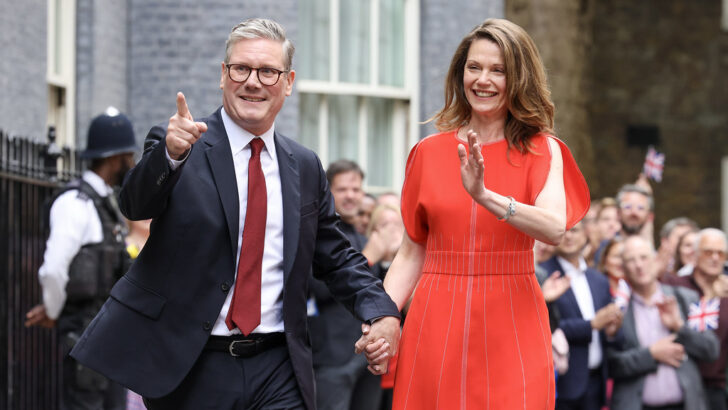It was a curious feature of the erstwhile British government that, despite the ruling party being officially named the ‘Conservative and Unionist Party’, the higher-ups in London showed very little interest in the part of the United Kingdom on the northeast of this island.
The role of Secretary of State for the North has never particularly been a coveted position in the British Cabinet, but the Tories brought that to a new level, having a staggering eight incumbents during their 14-year reign – seven of them serving for less than two years in a region that desperately needs stability.
When then Secretary of State Karen Bradley told journalists in 2018 that it was news to her that in elections in the North, “people who are nationalists don’t vote for unionist parties and vice versa,” it crystalised the hands-off approach that now typified a narcistic political elite obsessed with infighting and jockeying for positions rather than governing.
Privately, Church leaders admitted that they were stunned not only by the lack of interest in northern affairs from the former government, but also the cavalier attitude adopted to issues like legacy legislation dealing with what we euphemistically call ‘the Troubles’.
Despite the opposition of every single political party, civil society organisation and faith community, officials in London were adamant that what a post-conflict society needed was an end to prosecutions for heinous crimes, and a scolding to victims and survivors to get on with their lives.
Baroness Nuala O’Loan, a columnist with this newspaper, deserves huge credit for exposing the recklessness of the Conservatives’ Legacy Act, which ended all criminal and civil cases connected to the 1968-1998 civil conflict.
The incoming prime minister Keir Starmer has vowed to scrap the law. Baroness O’Loan and others will hold his feet to the fire on this in Westminster.
Officials in both Dublin and Belfast will also be keen for a wider reset on Anglo-Irish relations. Whatever frictions will continue because of Britain’s decision to leave the European Union (EU), we can likely rest assured that no incoming cabinet minister will threaten to cut off food supplies to Ireland as Tory minister Priti Patel did just six years ago.
The Irish Government should react generously to the new mood music coming from London and be Britain’s best ally at a European level and dampen the Brussels tendency to punish Britian for leaving.
The election was a good night for Sinn Féin and a rather poor night for the Democratic Unionist Party (DUP). This is likely to lead to more pressure for a wider discussion of Irish reunification. Former Taoiseach Leo Varadkar is among those calling for the debate to intensify. He is right, of course, but it is a debate that needs to proceed with prudence and parity of esteem.
More widely, at the heart of Keir Starmer’s agenda – both domestically and how his administration affects the island of Ireland – appears to be a campaign to make politics normal again and end the psychodrama delivered by the previous administration on an almost daily basis.
Of course, for people of faith the new administration also brings understandable anxiety. Mr Starmer is a strong supporter of euthanasia and has promised to make time for legislators to vote on the issue.
How Labour approaches the Human Fertilisation and Embryology Authority (HFEA) will also be a key watch for people who value human life at all stages. There is a campaign by biotech firms to expand the already common experimentation that takes place on human embryos. One of the goals is to remove the 14-day limit, so scientists can experiment on unborn babies up to four weeks’ gestation.
On the educational front, recent British governments have adopted a progressive and pluralist approach that has allowed faith schools to flourish. This has irked the hardline elements within the Labour Party who favour a one-size-fits-all approach. Mr Starmer has so far sidelined these elements, let us hope that will continue.
For Catholics, politics is always the art of the possible – we should challenge the new administration where it falls short, and work in partnership for the common good. Overall, we should wish Mr Starmer and his colleagues a fair wind – for all of our sakes.


 Prime Minister Sir Keir Starmer
Prime Minister Sir Keir Starmer 